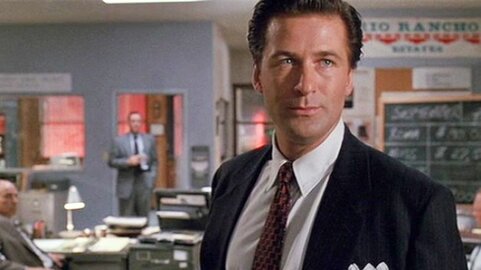|
While writing a poem can be a very tough challenge, getting people to read even the best of poems is almost always tougher. Poets face a serious "no win scenario" with marketing. If you don't market your poems, nobody will ever know they exist. If you market your poems, you risk looking desperate or self-absorbed. What's more, marketing is a very stressful, rough and tumble world. It's a shark tank mentality, while writing poetry is more of a Zen, one-with-nature and inspiration feeling. The difference between writing poetry and marketing it is as big as the difference between eating a nicely cooked steak or trying to eat a live cow. So what do we do? Actually, I was hoping you'd tell me! It's a very problematic obstacle and it's probably only going to get worse with the rise of AI platforms. Not because AI's will write good poetry, but because even more wannabes will flood the market cheekily devising a masterplan to use their AI word-salad to get rich and famous. It's going to be very, very ugly. And it's already pretty bad. Here are a few things I think may help:
Poetry for the most part only self-markets for dead poets. Something about being dead makes a poet more interesting. Unfortunately, you can't bask in the glory from six feet under and the light from your halo up-top past the Gates will blind you to earthly success. So, I leave you with these famous words, slightly paraphrased: "Do you know what it takes to sell poetry....?" One thing you can do is to have really solid, polished work. If you want some help with your poems, email at [email protected] OR [email protected] Or click a button below. Tally Poems Written: 311 Submissions: 51 Rejections: 21 (13 tiered) Acceptances: 0 Poem written today: "n/a" Mixing song "Coming Home" for release! Categories All
0 Comments
Poets nowadays have a new objective: stop the scroll. It's not as easy as you might think. If you're using sexy pictures, crazy gifs, or exploding anythings to get attention for your poems, I've got news for you: it's not your poems people are looking at! Here's what you'll hear if people are truly reading your poems:
You'll also get a lot of shares, not just likes. You'll know in your bones when you've really touched people. You'll also know when you haven't. But here's the real problem: you might be capable of getting people's attention with your poems, but you've yet to master the art of stopping the scroll. This art is slightly different than the art of writing poetry. It's based on simple elements, but these elements are really hard to see and smooth out in your own poems because you're too close to them. Just like you often need another person's opinion about your outfit, hair, or overall look, it can really help to get outside insight into your poetry. If you're not getting the kind of response you'd hoped for with your poems, or you want an edge in submitting to publications or contests, consider getting a quick polish through the button below or simply send an inquiry to [email protected] I've also posted a lot of poetry tips, ideas, and exclusive access to my own poems over at my Patreon page. There's also unique pictures and access to my flash-fiction and occult writings. Categories All Whether you're planning to submit your poems for publication, share them on social media, self-publish them, or enter them in a contest, you need to make sure you've taken care of three basic elements: 1) Grammar. A poem with even a single grammar mistake looks weak. People expect a lot from poems. One of the things they expect is that the poetry has a solid grip on basic grammar and spelling. If your poems even have minor mistakes in punctuation or spelling, the content and meaning of your poem may be wasted. 2) Attention Grabbing Title. You only have about 6 to 8 seconds to grab the reader's attention and keep it. Everything starts with your poem's title. Most unpublished poems I've read could use a title tweak. 3) Strong verbs. If you use dull action words in your poem, you'll bore the reader. On the other hand, if you're inventive, they'll keep reading to the last line. These are three of the most critical elements of your poems, but they're far from the only elements. There are dozens of other ways to polish your poems and make them stand out from the crowd. If you'd like some help with making sure your poems are on point before your post, publish, or submit them, use my Poem Polisher service. I can help you with fast, expert service! I've been averaging a less than 24 hour turnaround time for polishes. Your order includes a full polish for your poem plus a full work order detailing exactly what was done with your poem and evaluating specific areas. You'll also receive a personalized tip with every polish!! Send an inquiry to [email protected] OR use one of the buttons below! You can also support me over at Patreon and get a lot of poetry tips and personal services.... Categories All Michael Cunliffe is an interesting poet with quite a lot of range and insight. You'll find him on Facebook most days, posting clean, imaginative poems. For the most part, Cunliffe plays to his strong suits by writing on traditional themes and delivering what can be best described as warmly expected (and received) lyrics. Every now and again, though, the poetry angels sprinkle a bit of transcendental confetti across Cunliffe's virtual pages, and the result is almost always a pleasant wisp of Zen. For example, Cunliffe's, "Other Hand Clapping," (read by clicking the pic) is a pleasantly astonishing concrete poem, based on the classic koan: "What is the sound of one hand clapping?" Here, Cunliffe decides to plunge past the paradox and deliberately identify one hand (the right) with the thunderous sound of ego and self-applause, while the left hand remains a singer of soulful silence. I actually think this is the "answer" to that old koan -- at least one answer anyway. The sound of one hand clapping is the boundless music of the soul. The silence of the eternal one. And I thank Cunliffe for sharing his gnosis. Imagining the two hands in dialogue, on the precipice of "shaking" or uniting, is a brilliant poetic image, so brilliant it should be painted, or sculpted, or... made concrete. This is why Cunliffe deserves a double-brilliancy prize here. Not only did he realize the theme deserved visual representation, he was able to pull it off with aplomb. That's poetic instinct. You can't buy it and few are born with it. So how do you get it? Oh, by writing and writing and reading poets like Cunliffe who are solidly following the footsteps of the Muse. Let's take a look at a couple of other fine points from the poem. The first is the plainness of the diction. Cunliffe realizes that the concrete form provides enough spectacle, so the language can and should be pared down. Second, the two hands, visualized on the page, are in dialogue, both linguistically and visually. It's a dialogue of the soul and the flesh, but the flesh ain't listening. Cunliffe's conclusion: Your hand Feels not mine isn't an admission of defeat. It's a declaration of spiritual epiphany. It's the answer to the koan. Last thing: this poem had to be concrete to work. That's the only, and I mean only, justification for making a concrete poem. It may feel brilliant and inventive to shape your words this way, but unless the poem has to be concrete, you'll just look silly most of the time. Please friend me on Facebook and follow me @Twitter to keep up with all I'm doing. Categories All |




